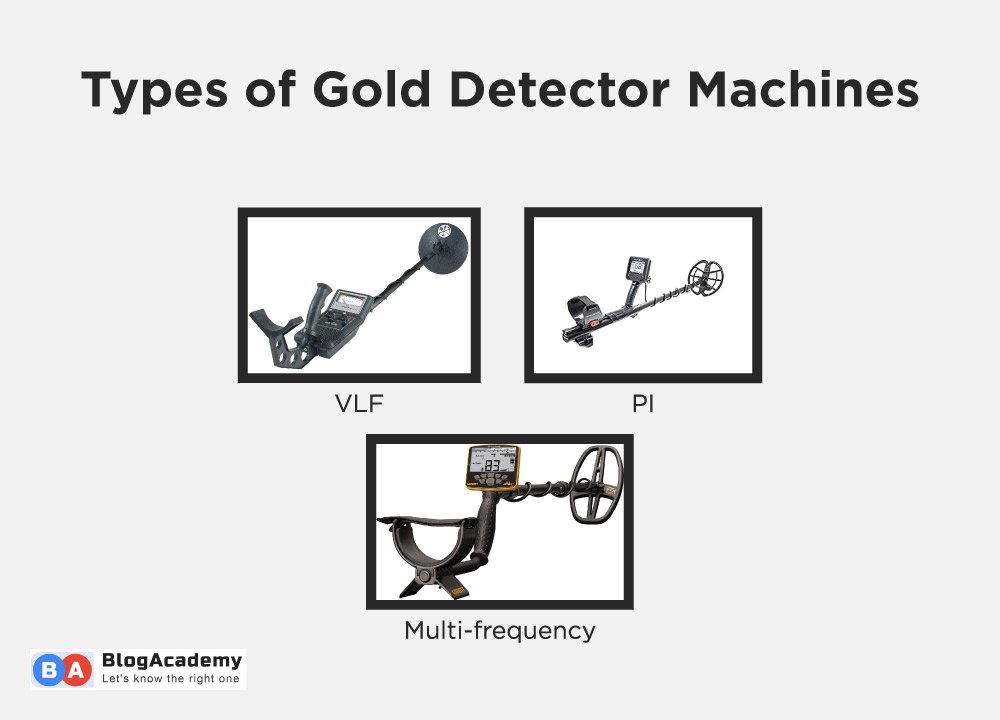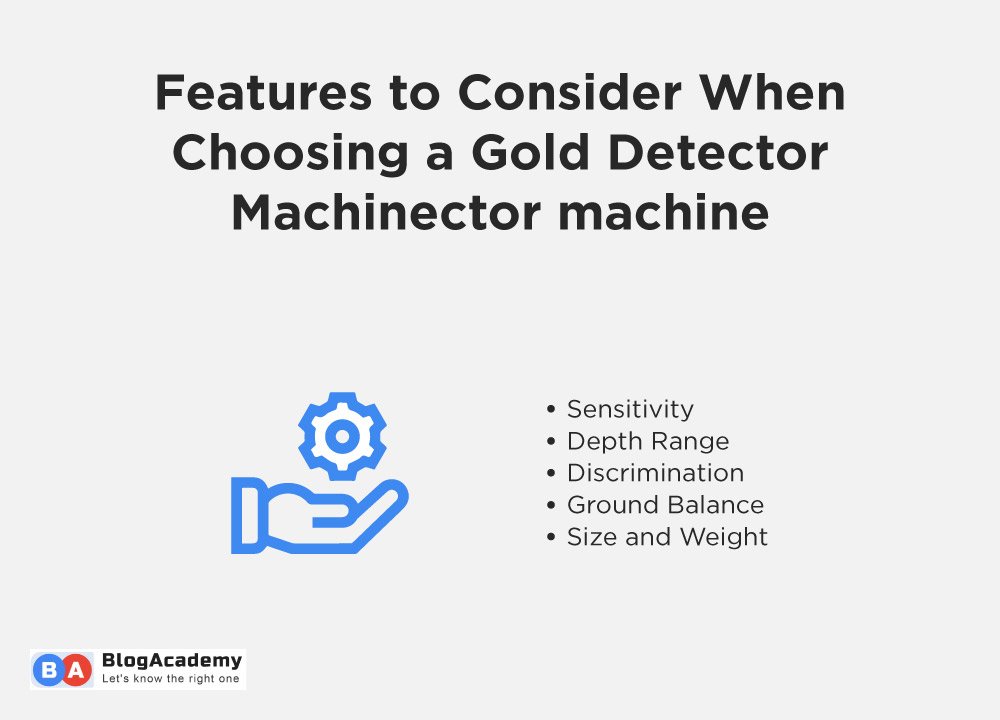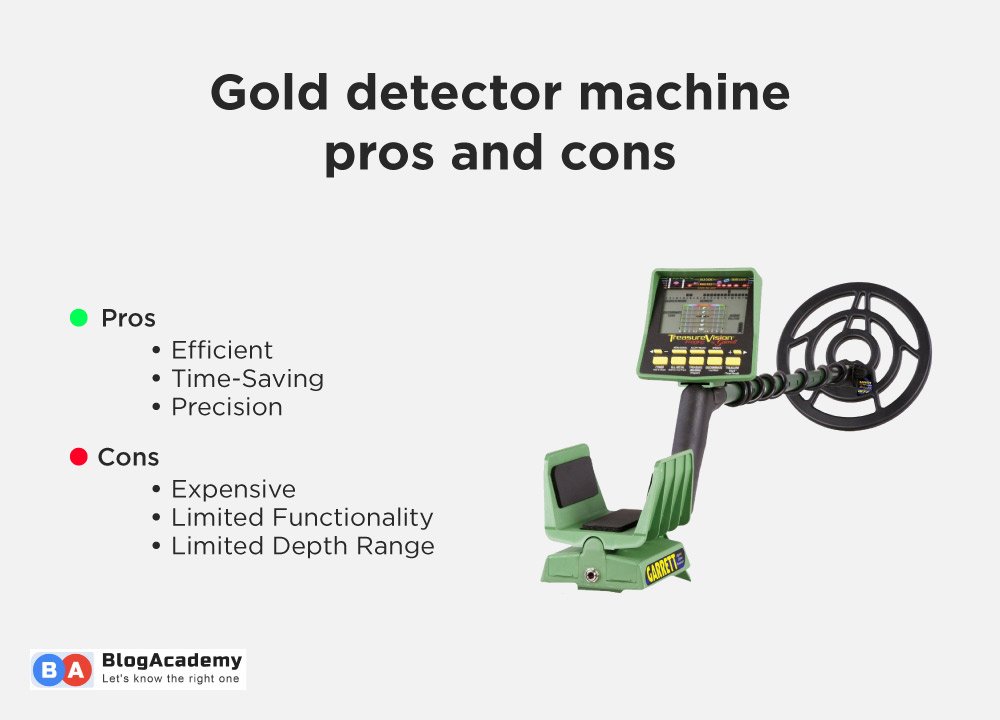Gold is a valuable metal that has been treasured by humans for centuries. For many people, the allure of finding gold is irresistible.
Whether you’re a professional gold prospector or just an enthusiast, a gold detector machine can be a valuable tool in your quest to find this precious metal.
In this blog post, we will explore what a gold detector machine is, how it works, the types available, features to consider, best practices for using one, benefits, and much more.
What is a Gold Detector Machine?
A gold detector machine is a handheld electronic device that is designed to detect gold nuggets, coins, or other gold artifacts that may be hidden underground.
Gold detector machines work by emitting a magnetic field or a pulse of energy into the ground. When the magnetic field or pulse of energy comes into contact with a metal detector object, it creates an electromagnetic field that the detector can pick up.
Some metals can not be detected by metal detectors.
Types of Gold Detector Machines

There are three main types of gold detector machines:
1. VLF (Very Low Frequency) gold detector machines
VLF gold detector machines are the most commonly used type of gold detector. They emit a continuous low-frequency signal into the ground, which is capable of detecting small, low-conductivity metals like gold. VLF detectors are sensitive to mineralization in the soil, so they are best used in areas with low to moderate mineralization.
2. PI (Pulse Induction) gold detector machines
PI gold detector machines emit short bursts of high-frequency energy into the ground. This type of detector is more sensitive to larger and deeper metal objects, making it ideal for detecting gold nuggets or large gold deposits.
PI detectors are also less sensitive to soil mineralization, so they are a good choice for areas with high mineralization.
3. Multi-frequency gold detector machines
Multi-frequency gold detector machines can emit multiple frequencies into the ground simultaneously. This type of detector is versatile and can be used in a wide range of soil conditions.
Multi-frequency detectors are a good choice for gold prospectors who need a detector that can handle different soil conditions.
How Gold Detector Machines Work
Gold detector machines work on the principle of electromagnetism. When the detector emits a magnetic field or pulse of energy into the ground, it creates an electromagnetic field.
When this field comes into contact with a metal object, it creates an eddy current in the metal. The eddy current, in turn, creates a magnetic field of its own, which the detector can detect.
Features to Consider When Choosing a Gold Detector Machine

When choosing a gold detector machine, there are several features to consider:
- Sensitivity: Sensitivity refers to how well the detector can detect small or low-conductivity metals like gold.
- Depth Range: Depth range refers to how deep the detector can detect metals.
- Discrimination: Discrimination refers to the detector’s ability to differentiate between different types of metals.
- Ground Balance: Ground balance refers to the detector’s ability to adjust to different soil conditions.
- Size and Weight: Size and weight are important considerations for gold prospectors who need to carry the detector for long periods.
- Waterproofing: Waterproofing is an important feature for gold prospectors who need to detect gold in rivers or streams.
Pros and cons

Pros of Gold Detector Machines:
- Efficient: Gold detector machines are highly efficient in detecting gold, as they are specifically designed for this purpose.
- Time-Saving: Using a gold detector machine can save a significant amount of time as it can detect gold in a matter of minutes, which would otherwise take hours of manual searching.
- Precision: These machines are designed to locate gold precisely, making it easier to dig it up without damaging the surrounding area.
- Easy to Use: Most gold detector machines are user-friendly and can be operated by anyone, regardless of their experience level.
- Versatility: Gold detector machines can be used in a variety of environments, including deserts, beaches, and even underwater, making them versatile and adaptable to different situations.
Cons of Gold Detector Machines:
- Expensive: Gold detector machines can be quite expensive, and the cost can be a barrier for some individuals.
- Limited Functionality: These machines are designed to detect gold, which means they cannot be used for other purposes.
- Limited Depth Range: Most gold detector machines can detect gold only up to a certain depth, which means they may not be useful for locating gold that is buried too deep.
- Battery Life: The battery life of gold detector machines can be limited, and they may need to be charged frequently.
- False Positives: Gold detector machines can sometimes produce false positives, which can lead to wasted time and effort digging up areas where no gold is present.
Applications of Gold Detector Machines
Gold detector machines have a variety of applications, including gold prospecting, metal detecting for treasure hunting, industrial applications, and environmental and geological surveys.
They are also commonly used by hobbyists and enthusiasts who enjoy exploring the outdoors and finding hidden treasures.
Conclusions
A gold detector machine is an essential tool for anyone searching for gold. With advanced technology and features, these machines make the search for gold more accurate and efficient.
By choosing the right machine and following best practices for using it, you can maximize your chances of finding gold and enjoy the thrill of the hunt.



